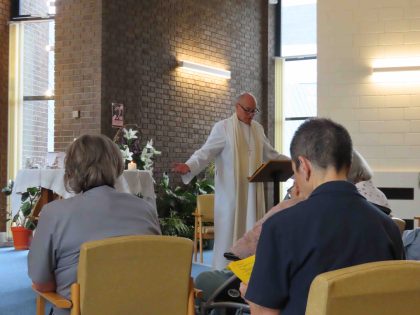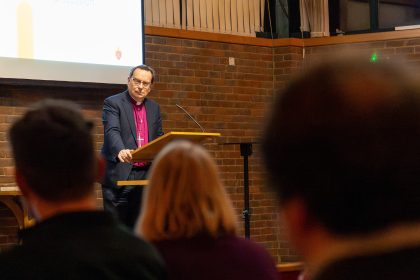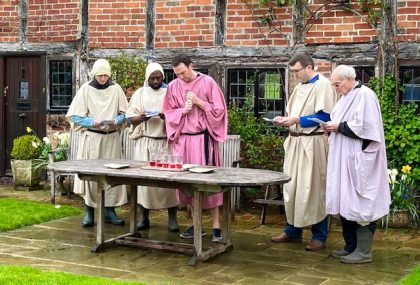Ahead of the next Neuro-Divergent Clergy Lunch on 7 March, the Revd Rachel Noël writes about how the church can better value neuro-divergent people and the small steps our diocese is taking to be more welcoming of neuro-diversity…
Neurodiversity is a term that was coined in 1997 to describe the naturally different ways that brains work and interpret information. It’s a strengths-based approach, valuing the diversity. Most people are ‘neurotypical’, with brains that function and process information in the way that society expects. Around 1 in 7 of us are neuro-divergent, with brains that function, learn and process information differently. This includes Autism, ADHD, Dyspraxia, Dyslexia, Tourette Syndrome and others. Our abilities are often ‘dynamic’, varying depending on fatigue, environment, stress etc. Co-occurrence is common – current estimates are that up to 50% of people with ADHD are also autistic. I’m one of those people, I was diagnosed Autistic, ADHD and Bipolar during my curacy, 7 years ago.
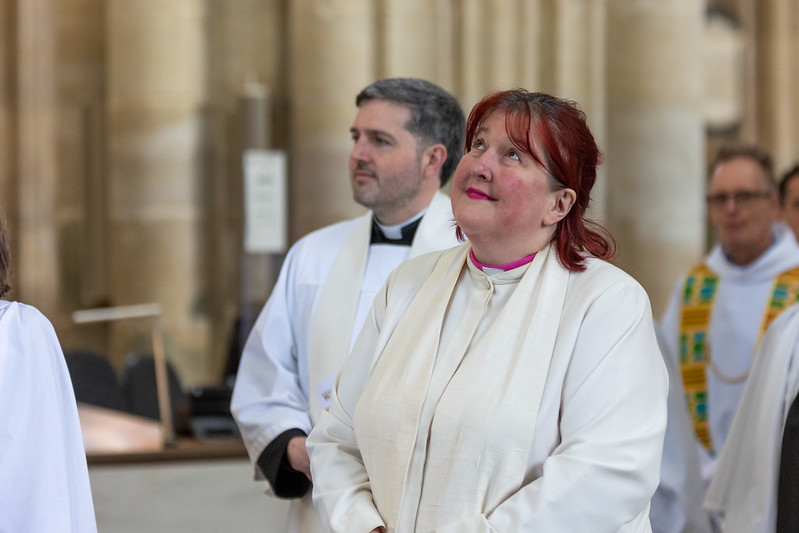
Fear, ignorance, prejudice and stigma still surround many of these conditions in society, but also in the church. There are all sorts of assumptions that get made; for example, myths that autistic people can’t be pastoral or show empathy, assumptions that you can’t be an incumbent if you are neuro-divergent. Canon C4:3 still allows bishops to exclude from ordination based on their assumptions about a candidate’s physical or mental health. Since my own diagnoses I’ve had clergy tell me that in eternal life there will be me without any of these conditions, I’ve had people want to pray for demons to be released, and call into question my ordination, based on their misunderstanding and ignorance of neurodiversity.
Nationally, the Church of England has set a strategy of younger and more diverse. In this diocese, we have started a neuro-divergent clergy lunch to give an opportunity for neuro-divergent clergy to gather, to get to know each other, to share our stories, to connect with each other. Our first gathering was in November 2023, and participants described the value of being able to relax in a space where they didn’t have to try and fit, where they could speak freely about particular challenges or situations they faced and experience support and understanding.
Our gatherings start with lunch together, joined by at least one member of Bishop’s Staff Team – to show that neurodivergent ministry is valued in this diocese. After lunch, members of BST leave, to ensure that people feel safe to express their experiences and continue talking with each other. Our next gathering is on 7th March, all neurodivergent clergy (both diagnosed and self-diagnosed) are welcome (as there are significant delays and challenges in being diagnosed, with waitlists lasting for many years.)



My colleague, Fiona MacMillan, Chair of the CofE National Neurodiversity Working Group, describes how all of us are a mixture of strengths and needs – this is true for neurotypical and neuro-divergent people, lay and ordained. The particular profiles of neuro-divergent people mean that often our needs are not recognised or supported in society, which can make it harder for us to use our strengths. It’s why we create these gatherings to share things that help, to work together on challenges, and to support and value each others gifts and strengths.
I think we still have a long way to go to really value neuro-divergent people in our churches and in our communities. We are often expecting people to behave and think a certain way, and those that are different can make us feel uncomfortable. Often we find it easier to exclude those who challenge us, or seek to distract or entertain them, rather than to be curious, to listen, to get to know and understand. It’s easier to treat people who are different just as recipients of pastoral care – to want to look after them, to care for them, but still to treat them as ‘other’, to keep them at arm’s length… unless or until they can conform to our expectations of them.
I’ve been fortunate to work in parishes where I have felt able to be open about my neurodivergence, to be honest about my own particular challenges, to seek support and put measures in place for the aspects of my work that I find hard to be on top of (for me, that includes administration). But with the right support in place, I’m able to use my strengths and gifts to serve the kingdom of God in our diocese. For me, that includes sharing my creativity and communication, my gift for seeing big picture, process, strategy and connections; my curiosity and passion for excellence, and my willingness to keep asking questions. Through being a member of the community of Hopeweavers I’ve learned to use my creativity in exploring my faith, to encounter God. The Church Times featured one of my paintings on their cover last year, in an article they featured about autism.
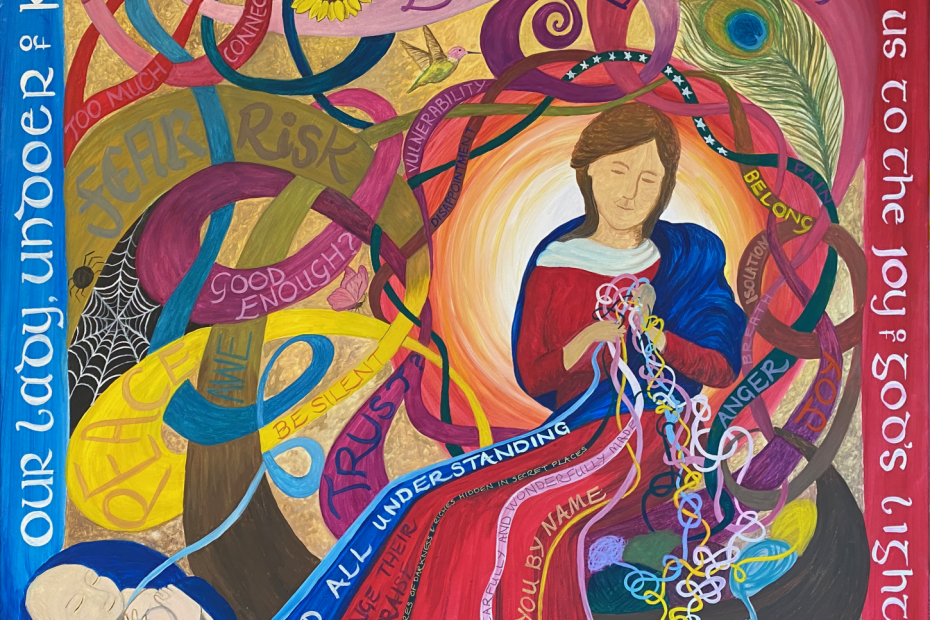
What would it take to value the faith stories of those with brains and bodies that work differently to ours? Are we willing to see Christ working in each other?
I’m really glad that the church is starting to engage with neurodiversity, and the wide variety of gifts that we offer. I hope that we can work together to keep making our churches more welcoming and accessible for the wonderful breadth of people that God has created.
SIGN UP FOR THE NEURO-DIVERGENT CLERGY LUNCH ON 7 MARCH >>>
Useful Links:
Church Times article – https://www.churchtimes.co.uk/articles/2023/19-may/features/features/autism-adventures-beyond-the-neurotypical
Premier Radio interview – https://www.premier.plus/faith-hope-and-love/audio-series/clips/audio-items/is-your-church-neurodiverse-friendly
Read more on Rachel’s blog here: https://www.thepinkvicar.com/


